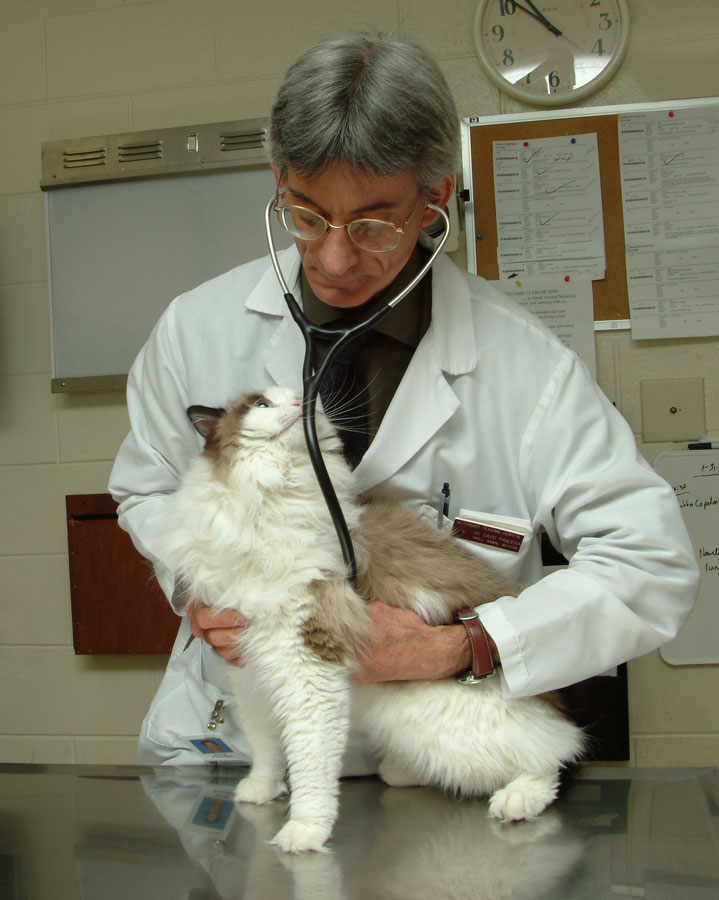Veterinary Teaching Hospital introduces radioactive iodine therapy for feline hyperthyroidism

The Virginia-Maryland Regional College of Veterinary Medicine's Veterinary Teaching Hospital has introduced a new radioactive iodine therapy for an endocrine disorder that commonly affects older cats.
Feline hyperthyroidism is caused by a benign goiter of one or both thyroid glands that, in turn, causes an elevation of thyroid hormones, according to Dr. David Panciera, a professor in the Department of Small Animal Clinical Sciences.
Cats suffering from feline hyperthyroidism may eat, drink, and urinate more than normal, lose weight, be hyperactive, suffer coat quality issues, have an elevated heart rate and other clinical signs, said Panciera.
“This is one of the more common disorders we see in geriatric cats,” said Panciera, who is board certified by the American College of Veterinary Internal Medicine. There are both medical and surgical approaches to managing the problem, he said, but there can be side-effects and complications from each. The medical therapy is generally quite effective; however, compliance issues often undermine the medical approach.
“It can be quite difficult to get owners and their cats together and agree on whether or not they should be taking their medications,” quipped Panciera.
Radioactive iodine therapy is an extremely effective treatment for treating feline hyperthyroidism, Panciera notes. As a low dosage of radioactive iodine is administered to the patient through a single subcutaneous injection, the agent is accumulated and concentrated in the abnormal parts of the thyroid glands. The iodine destroys the diseased tissue, while healthy thyroid tissues are not affected. Clinicians have had a very high success rate with the treatment, and only infrequently do patients sustain complications where too much thyroid tissue is compromised and thyroid supplementation must be considered.
Candidates for the radioactive iodine therapy should be relatively healthy cats that have been off their feline hyperthyroid medications for at least two weeks, Panciera said, and the treatment usually involves hospitalization for three or four days.
Upon admission, patients are provided with a comprehensive health evaluation and a thyroid scan is done to ascertain the extent of the problem and to develop a therapeutic approach. Once the agent is injected, the patient must be kept in isolation for three or four days while the radioactive agent is cleared from the body.
The college’s Veterinary Teaching Hospital is ready to provide the service and looks forward to referrals from community practitioners throughout the region, according to Panciera.




